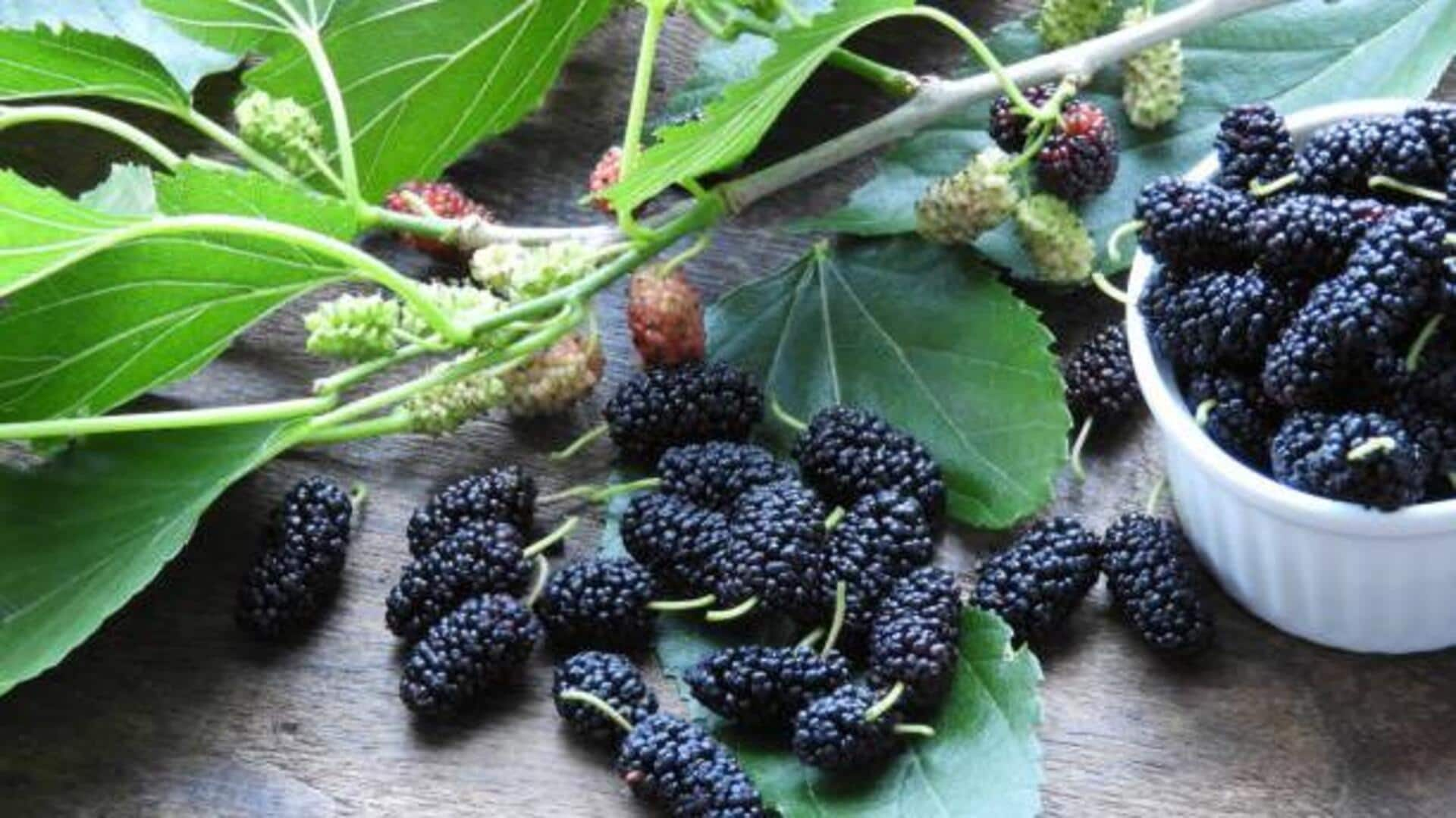
Surprising health benefits of mulberries
What's the story
Mulberries are small, sweet fruits that are packed with nutrients and offer a range of health benefits. These berries, which can be eaten fresh or dried, are often ignored in favor of more popular fruits. However, mulberries have a lot to offer when it comes to nutrition and wellness. Here are some surprising health benefits of mulberries that you may not know about.
#1
Rich source of vitamins and minerals
Mulberries are loaded with essential vitamins and minerals, including vitamin C, vitamin K, iron, and potassium. Vitamin C is an antioxidant that boosts the immune system, while vitamin K is important for bone health. Iron helps in transporting oxygen in the blood, and potassium regulates blood pressure. Including mulberries in your diet can help meet your daily nutritional requirements.
#2
High antioxidant content
Antioxidants are important for protecting the body from oxidative stress and damage from free radicals. Mulberries are rich in anthocyanins, flavonoids, and resveratrol, which are powerful antioxidants. These compounds may help reduce inflammation and lower the risk of chronic diseases such as heart disease and diabetes.
#3
Supports digestive health
Dietary fiber is essential for keeping your digestive system healthy, and mulberries are a great source of it. Eating fiber-rich foods like mulberries can help keep bowel movements regular by preventing constipation. Fiber also helps keep your gut healthy by promoting the growth of good bacteria in your intestines.
#4
May improve heart health
Mulberry consumption has been linked to better heart health due to its ability to lower cholesterol levels and improve blood circulation. The presence of resveratrol in mulberries may contribute to these effects by reducing LDL cholesterol (the bad kind) while increasing HDL cholesterol (the good kind). This balance is crucial for maintaining cardiovascular health.
#5
Potential anti-diabetic effects
Preliminary studies indicate that mulberry extracts may have anti-diabetic properties by controlling blood sugar levels after meals. This effect could be due to compounds present in the leaves as well as fruits themselves which inhibit certain enzymes involved in carbohydrate digestion, leading to lower spikes in glucose levels post-meal consumption.